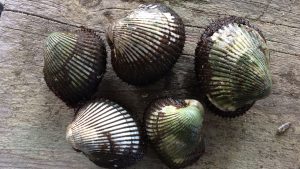Search results for: VIPREG2024 best promo code for 1xbet Argentina
Bulletin: New Shoreline Change Data Reveal Massachusetts is Eroding
Bulletin: New Shoreline Change Data Reveal Massachusetts is Eroding Approximately 75 percent of the U.S. ocean shoreline is eroding. Massachusetts’ ocean-facing shore is no exception. A recent study of shoreline change in Massachusetts by the U.S. Geological Survey, Woods Hole Oceanographic Institution Sea Grant Program, and Cape Cod Cooperative Extension reveals that approximately 68 percent,…
Read MoreHelping Communities Lower the Cost of Flood Insurance
Helping Communities Lower the Cost of Flood Insurance March 2018 — Three years ago, Woods Hole Sea Grant and its outreach partner the Cape Cod Cooperative Extension developed a first-of-its-kind program for coordinating regional flood insurance and promoting flood resilience in coastal communities. That program is now serving as a model for others across the…
Read Moremportant Changes to the Federal Crop Insurance Program for Quahog Farmers
mportant Changes to the Federal Crop Insurance Program for Quahog Farmers Walton, W. and J. Gallons Marine Extension Bulletin, 4 pp., 2004 WHOI-G-04-003
Read MoreBeyond Oysters: Expanding the shellfish market for alternative species
Expanding shellfish markets for alternative species Oysters on the half shell represent 94 percent of Massachusetts’s $28 million shellfish aquaculture industry. For an industry that has grown over 300 percent in value over the last ten years, some worry about the reliance on a monocrop: one bad year for oysters could be devastating to aquaculture…
Read MoreBulletin: Beach and Dune Profiles: An Educational Tool for Observing and Comparing Dynamic Coastal Environments
Bulletin: Beach and Dune Profiles: An Educational Tool for Observing and Comparing Dynamic Coastal Environments Beaches and dunes are in constant motion, continually changing shape and shifting position in response to winds, waves, tides, relative sea level, and human activities. The most significant changes occur seasonally and following storms.
Read MoreUpdate on River Herring Network
Update on River Herring Network Dec. 2017 — Each spring river herring come from the ocean and swim, or “run” up rivers to spawn in ponds and slow sections of rivers. Each fall, Massachusetts river herring wardens gather together to talk about their favorite fish and discuss ways to preserve it. For centuries, people used…
Read MoreAn Ethogram of Body Patterning Behavior in the Biomedically and Commercially Valuable Squid Loligo pealei off Cape Cod, Massachusetts
An Ethogram of Body Patterning Behavior in the Biomedically and Commercially Valuable Squid Loligo pealei off Cape Cod, Massachusetts Hanlon, R.T., M.R. Maxwell, N. Shashar, E.R. Loew, and K.-L. Boyle Biol. Bull., Vol. 197, pp. 49-62, 1999 WHOI-R-99-005
Read MoreTeacher Workshop November 2003
Teacher Workshop November 2003 “Right Whale Ecology at the Intersection of Science, Technology, and Conservation” Dr. Mark Baumgartner is an Assistant Scientist in the Biology department of Woods Hole Oceanographic Institution. He studies the foraging behavior and ecology of whales, and the formation and location of the patches of plankton that whales feed on. In this…
Read MoreBioacoustics
Bioacoustics This program is a collaboration between the NOAA Northeast Fisheries Science Center and Woods Hole Sea Grant. Background Light is very limited in the ocean habitat. Below the photic zone (the depth to which sunlight is able to penetrate) it is very dark. For marine mammals, however, this vast 3-dimensional world is far from dark. The…
Read MoreAdaptations & Climate Change
Adaptation & Climate Change This program is a collaboration between the NOAA Northeast Fisheries Science Center and Woods Hole Sea Grant. Background What types of adaptations do marine mammals have and how are they dealing with climate change? In order to survive in their particular habitat, all animals must have structures and behaviors that…
Read More
